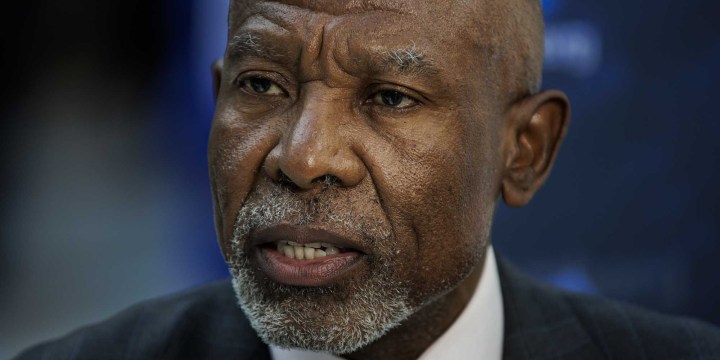BANKING SAFEGUARD
Better protection for bank clients with new deposit insurance scheme

Banking in South Africa became somewhat safer this week with the launch of the Corporation for Deposit Insurance by the South African Reserve Bank as part of a move to ensure financial stability.
The Corporation for Deposit Insurance (Codi) is part of the Twin Peaks regulatory reforms following the 2008/09 global financial crisis. Its establishment supports the SA Reserve Bank’s mandate of protecting and enhancing financial stability by monitoring the financial environment and mitigating systemic risks that might disrupt the financial system.
Codi will protect qualifying depositors, including individuals and non-financial businesses, in the event of a bank failure such as we have seen in recent years with African Bank and more recently, should a bank fail.
Banks are expected to have in place appropriate risk management systems, capital and liquidity buffers, risk management systems and governance arrangements to ensure that they operate as viable businesses in normal times and can withstand stress in difficult times.
However, if and when a bank goes through a period of stress that threatens its viability, either as a result of failure in its own management processes or as a result of external events, the Reserve Bank can step in to place the bank “into resolution”.
A 2019 discussion document by the Reserve Bank explains that banks would almost never enter resolution without warning signs of building pressure or without management, sometimes under instruction from the regulators, implementing corrective action. Banks are expected to have their own measures in place to help them recover from stress scenarios.
Codi moves risk from taxpayers to the banks
SA Reserve Bank governor Lesetja Kganyago told Daily Maverick at the launch: “SA has always covered depositors up to R50,000 and that cover was basically being footed by the taxpayers. Codi will relocate this correctly with the deposit takers themselves because they are members of Codi. We were the only G20 country that did not have deposit insurance. The introduction of Codi will also introduce competition among the banks in terms of attracting deposits.”
Codi, which is the newest SA Reserve Bank subsidiary, will provide cover of up to R100,000 to each qualifying depositor per bank in the unlikely event of a bank’s collapse. This coverage limit fully protects nine out of ten qualifying depositors in the country.
The Codi fund will be supported by, among other options, monthly premiums and loan contributions by member banks, reducing the financial burden on taxpayers.
Codi, which became operational on 1 April 2024, provides pre-planned, orderly access to deposits in qualifying products, and will inform qualifying depositors about when and how to access their funds. Qualifying products typically include, but are not limited to, savings accounts; current accounts; transactional accounts; term and notice accounts; Islamic Wadi’ah, Qard and Murabaha products; and tax-free savings accounts.
The cover is automatic and depositors do not have to register for Codi’s protection, and it extends to qualifying depositors of all banks, including commercial, cooperative and mutual banks as well as local branches of foreign banks.
Increased banking competition on the horizon
Bank disruptor Bank Zero hailed the move as a step towards changing South Africa’s banking landscape, which is dominated by the Big Five (FNB, Nedbank, Standard, Absa and Capitec). Bank Zero CEO Yatin Narsai points out that in the past three decades, 13 banks have failed in South Africa, the most recent being VBS.
“Because there was no explicit deposit insurance scheme in this country, depositors either lost their money or had to rely on the state coming to their rescue. We can never forget how many ordinary South Africans lost their life savings in the VBS implosion,” Narsai said.
A Nedbank spokesperson said the move would reduce overall systemic liquidity risk, a positive for the country. When questioned about the possibility of reduced risk for banks, Nedbank said Codi would result in the run-off factor applicable to retail clients reducing from 10% to 5%, therefore reducing the Basel requirement on account of the safer banking system.
Codi has been a long time coming, with the decision to proceed having been made in 2014 and the relevant legislation promulgated only in 2022.
Narsai suggested there was good reason for thinking that much of this could be attributed to delaying tactics from the Systemically Important Financial Institutions, or the banks considered too big to fail. In an environment with no deposit protection, these big banks enjoyed a “trust advantage” among depositors, who could feel relatively confident that, in the event of a liquidity problem, the government would intervene.
“Pre-Codi, many depositors decided to put up with the high bank fees and poor service of the big banks to have peace of mind. Thanks to Codi, they can now switch to the more customer-focused, innovative and cost-effective banks like Bank Zero. The banking oligopoly is dead; long live the new age of powerful, customised banking for everybody,” he said.
Narsai’s sentiments were echoed by Codi chief executive Sabihah Mohamed, who said, “With Codi’s introduction, we will protect all depositors whether they are large or small. So, we feel that depositors may feel more comfortable to consider banking with smaller institutions, which could lead to (greater) diversification of the banking sector.”
Deposit insurance came into effect in April and the first data set of covered depositors has been submitted to the Codi regulator. Narsai said there were two unique Bank Zero differentiators that benefited depositors, now that Codi was live.
Bank Zero says it has an advantage because minors with their own banking profiles on Bank Zero will have cover of up to R100,000 each, separate from their parents’ protected amount of R100,000. Narsai said this was in stark contrast to most other banks, which typically required minors’ accounts to be linked under a parent’s name, where the minor’s money would not be independently safeguarded.
Since Codi covered only one account per individual up to R100,000 across all accounts within that profile, parents assisting their minor children in saving would view this distinction as a substantial advantage, said Narsai.
Similarly, when it comes to stokvels, a Bank Zero club account has separate profiles for each member of the club, providing R100,000 of total cover for each member across their club contributions and other Bank Zero accounts. Given that one of the popular types of clubs – stokvels – represent a R45-billion market, the potential protection of these deposits in the hands of the individual members is good news for the South African economy.
Another benefit of Codi, Narsai said, was that each business banking profile an individual opened was protected by up to R100,000.
“This will encourage smaller businesses to conduct proper trading through their various business profiles rather than combining everything under their personal names. Since each separate profile is protected up to R100,000 at each bank, customers will also be encouraged to spread their money across several banks, knowing that each profile is safeguarded up to the limit of R100,000,” he said. DM

















About time too ! Australian banks have had this and a very powerful financial ombudsman in place for decades.
Better protection would be jailing those implicated in the VBS scam. Orange overalls will soon make people think twice.